How they lived in the Ottoman Empire: crazy laws and customs that today will seem wild to you
Categories: Asia | History | Nations | World
By Pictolic https://pictolic.com/article/how-they-lived-in-the-ottoman-empire-crazy-laws-and-customs-that-today-will-seem-wild-to-you.htmlThe Ottoman Empire, which existed from 1299 to 1922, was one of the most powerful and influential powers of its time. The majestic palaces, vast lands and cultural diversity of the magnificent empire were amazing. However, behind the splendor and grandeur lay some strange and even shocking customs and laws that today will seem absurd and wild to us. Below we look at 10 of the strangest practices of the Ottoman Empire in relation to women, children and more. Today, they all cause bewilderment and horror.

The fact that the sultans had harems is well known to everyone. But about how exactly the concubines lived there, they are often silent. Recall only the famous TV series "The Magnificent Age", in which the Sultan's concubines lived in luxury, ate delicious food, dressed beautifully and, in principle, did not deny themselves anything. However, in real life, things were a little different.
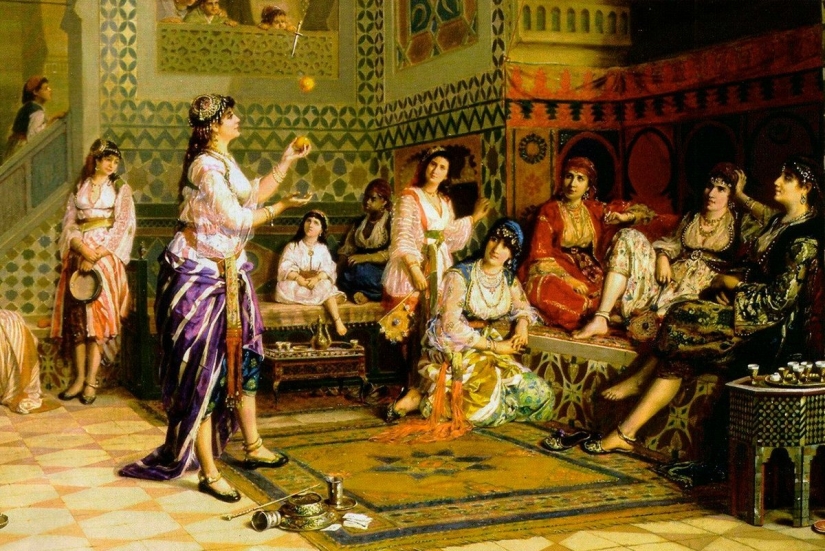
In the harem of Sultan Suleiman I there were 167 girls, and his son Selim II had 73. Of this set, only a few had the opportunity to be in the chambers of the Sultan, the ruler’s mother, Valide Sultan, was engaged in their selection. At the same time, the rest of the concubines could wait for months and even years to be invited to halvet - intimate solitude with the Sultan. The concubines of the harem could leave the palace and get married only if the ruler had never paid any attention to them for nine years.
Before getting into the sultan's harem, the girls had to learn to read, dance and the Turkish language. Most of the concubines were happy to attend special courses, as in the future this made it possible to become the favorite of the Sultan. However, there were exceptions...

Those who did not want to study, or violated the rules of the harem (for example, arranged conflicts), were severely punished. Girls could be beaten with a whip or beaten with wooden sticks on their legs. Moreover, sometimes educational measures were carried out with such force that in the future the concubines had serious health problems.
The very first sultans did not practice the transfer of the throne to the eldest heir. Instead, the brothers were given the opportunity to compete for the right to lead the empire ... To avoid competition, a potential heir could kill his brothers. There was no punishment for this either.
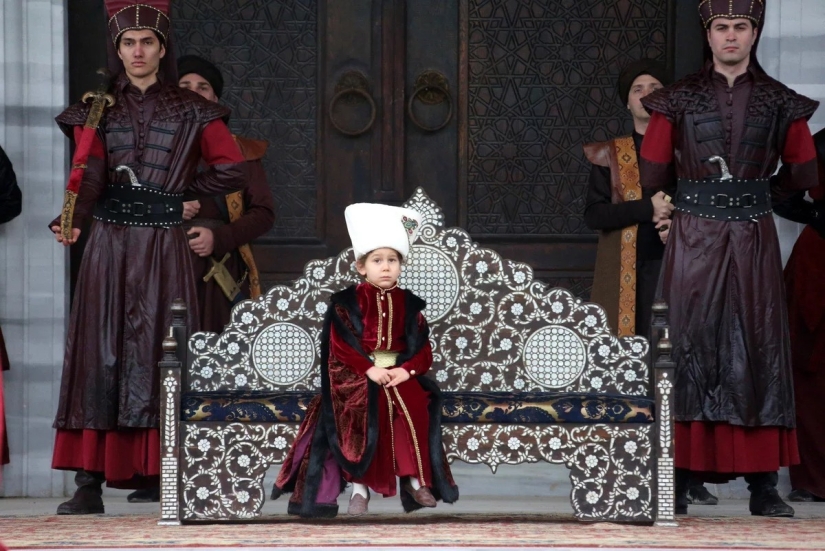
A striking example of fratricide is the formation of Mehmed the Conqueror. When he ascended the throne, with his usual cruelty, he ordered the execution of all his male relatives. The youngest brother Mehmed, who was still a baby, was strangled right in the crib.
The policy of fratricide was finally abandoned only in 1617. Selim II was the first to break this cruel law. Instead, the sultan proposed an alternative option for “eliminating” competitors: the shehzade, who had lost his throne, could continue to live, but only ... in cages.
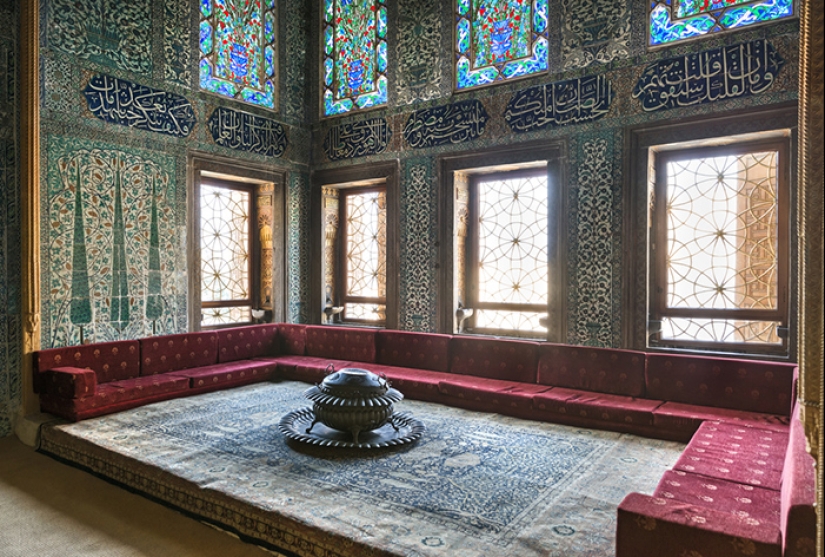
The defeated brothers were imprisoned in the Topkapi Palace in Istanbul, where special rooms were equipped for them - Kafes (translated from the tour. "Cage"). In these premises, the heirs to the throne could spend their entire lives, under the constant supervision of guards and cut off from civilization. This continued at least until the death of the ruling sultan.
It is already clear that serious passions boiled around the heirs to the throne in the Ottoman Empire. It was extremely important for the ruling sultan that he had a son, to whom power would later pass. And better - several at once, in case some kind of trouble happens to one of the sons. Therefore, the number one task for all the concubines and wives of the Sultan was to give birth to a boy for him.
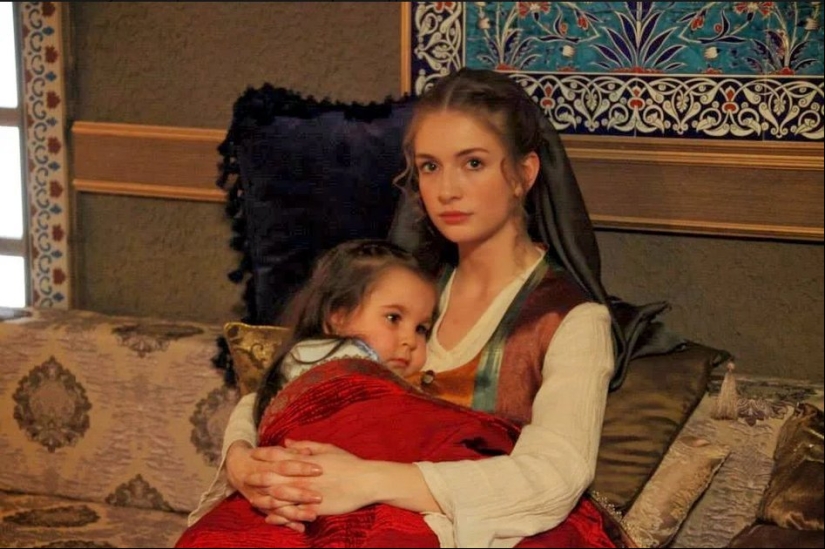
And if this did not happen for natural reasons (a girl was born), the mother was discriminated against. While the girls who gave the sultan an heir moved up the "social ladder" and became the "sultan", the mothers of their daughters remained "khatun".
The concubines who received the title of Sultan had special privileges in the harem. They had their own chambers, the best clothes, constant gifts from the Sultan and Valide, his mother. Girls who gave birth to daughters were deprived of these privileges. But even more vague for them, unlike the mothers of the heirs, was the opportunity to become the legal wife of the ruler.
There was a strange custom in the Ottoman Empire, which was called "Devshirme" or "Blood Tribute". Its essence was that every three years a tribute was collected from the entire population in the form of ... boys aged 8 to 18 years. Children thus obtained were forcibly circumcised, converted to Islam and sent to serve in the palace of the Sultan. Only those boys who were the only Christian children in the family could avoid such a fate.

And although the parents were very upset by the separation from their son, often for the child it was the only opportunity to climb the social ladder - to “escape” from the village, get an education and, in the future, take a high public position. Such children often became Janissaries - infantrymen of the armed forces of the Ottoman Empire.
Girls in the Ottoman Empire got married very early. As a rule, parents picked up a future husband for their daughters as early as childhood, and at the age of 8-9 they were already getting married. This was especially true for representatives of the Ottoman dynasty: since the Sultan needed as many heirs as possible, they did not delay the birth of children. Sometimes girls became mothers at the age of 13-16.

The youngest mother among the concubines of the Sultan who ever lived is Gulbahar-Khatun, the grandmother of Suleiman the Great. According to the surviving records, Gulbahar gave birth to her first child when she herself was only 12 years old.
Eunuchs played far from the last role in organizing order in the harem. They personally carried out the orders of the sultanas and the ruler himself, and some even became their advisers. Not surprisingly, they were respected in society and had a certain influence. However, they had to pay a high price for this… Their virility was “taken away” from them, in other words, they were castrated.
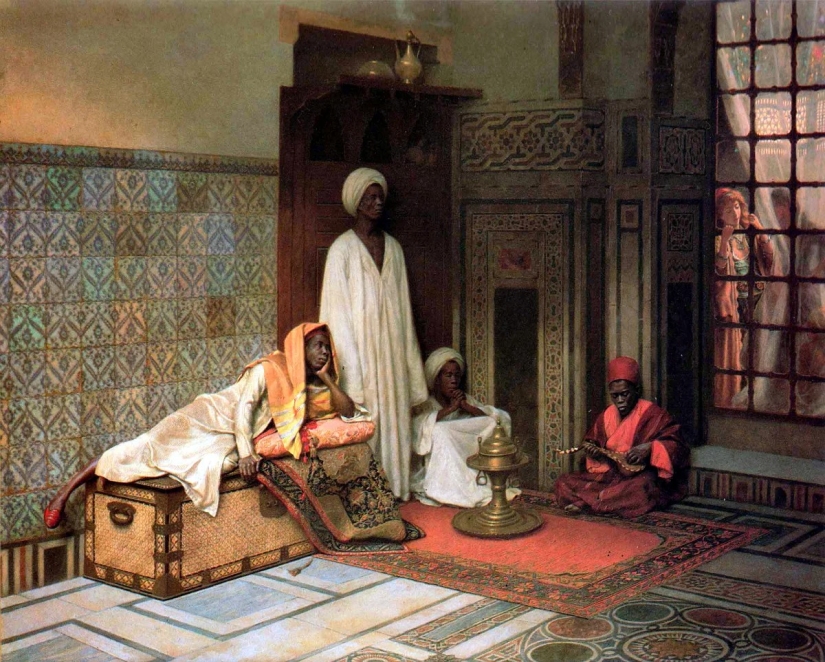
In addition to castration, additional precautions were also provided - only dark-skinned men were chosen as eunuchs. Thus, if the concubine nevertheless became pregnant (for example, due to improperly performed castration), a dark-skinned child was born. The eunuch, who was caught in connection with the concubine, was expected to be severely punished. First, the whole harem was informed about inappropriate behavior, then the guilty were expected to be lashed. After that, he was thrown into prison and starved, and at the end he was castrated again.
Previously, a person who broke the law could literally run away from justice. This was facilitated by a strange custom that was formed back in the 18th century: the convict could challenge the main executioner and compete with him in running. In the event that the violator of the law managed to overtake the executioner, the death penalty was abolished. Instead, the violator was sent away from the city.
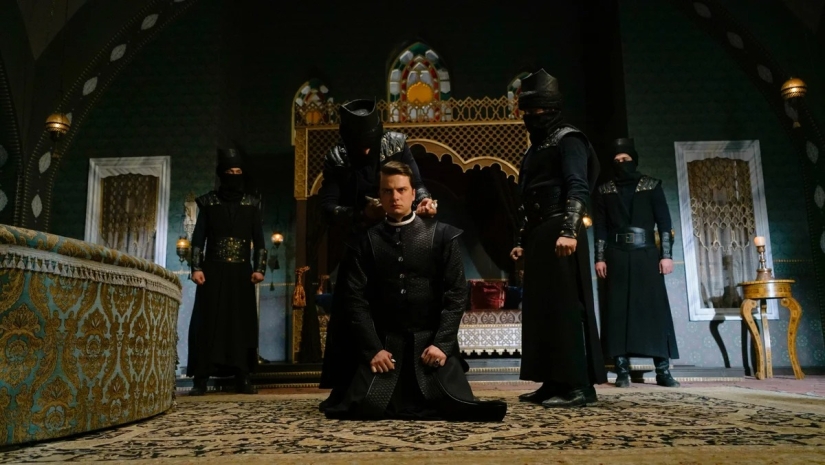
“So easy?”, you might think. Be that as it may... The fact is that only high-ranking officials could compete for the right to life. At the same time, they had to run from the Topkapi Palace to the place of public execution, which was located in the fish market. Young and hardy executioners overcame this path faster, so when the convicts reached the finish line, the executioner was already waiting for them with weapons in their hands.
Burning of the genitals is perhaps one of the most cruel and disgusting traditions of the Ottoman Empire. She appeared during the reign of Suleiman the Magnificent, when prostitution flourished in full swing in the state.
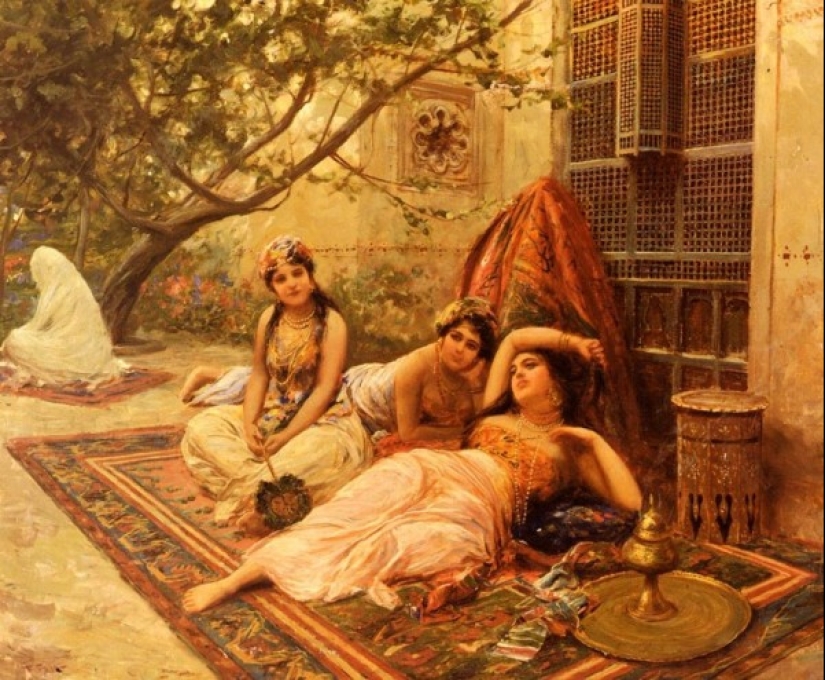
Lutfi Pasha issued a decree according to which all prostitutes selling their bodies were to receive a corresponding defamatory stigma. In his opinion, the just punishment for prostitution was the burning of the genitals. True, later the wife of Lutfi Pasha, Shah Sultan, demanded that this order be canceled. A quarrel arose between the spouses, during which the husband raised his hand to his wife. Thus, Lutfi Pasha lost his wife, deprived himself of the position of Grand Vizier and was forced to live out the rest of his days in exile.
Recent articles

It's high time to admit that this whole hipster idea has gone too far. The concept has become so popular that even restaurants have ...

There is a perception that people only use 10% of their brain potential. But the heroes of our review, apparently, found a way to ...

New Year's is a time to surprise and delight loved ones not only with gifts but also with a unique presentation of the holiday ...